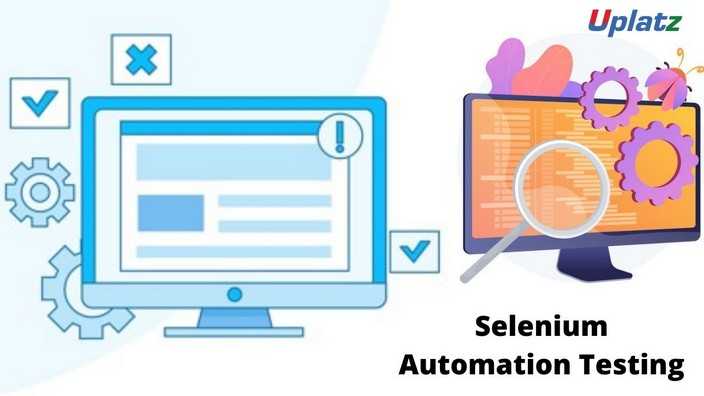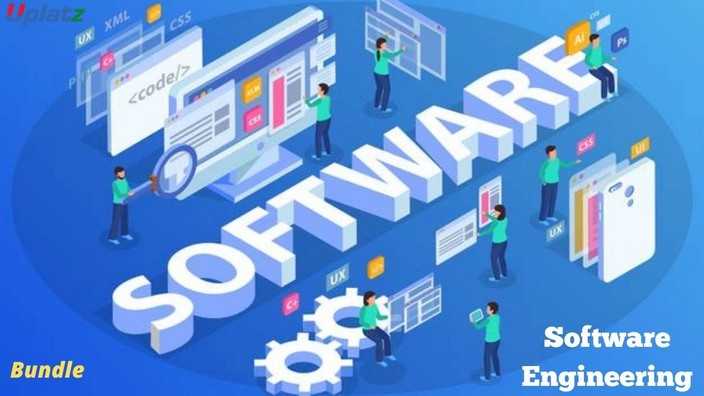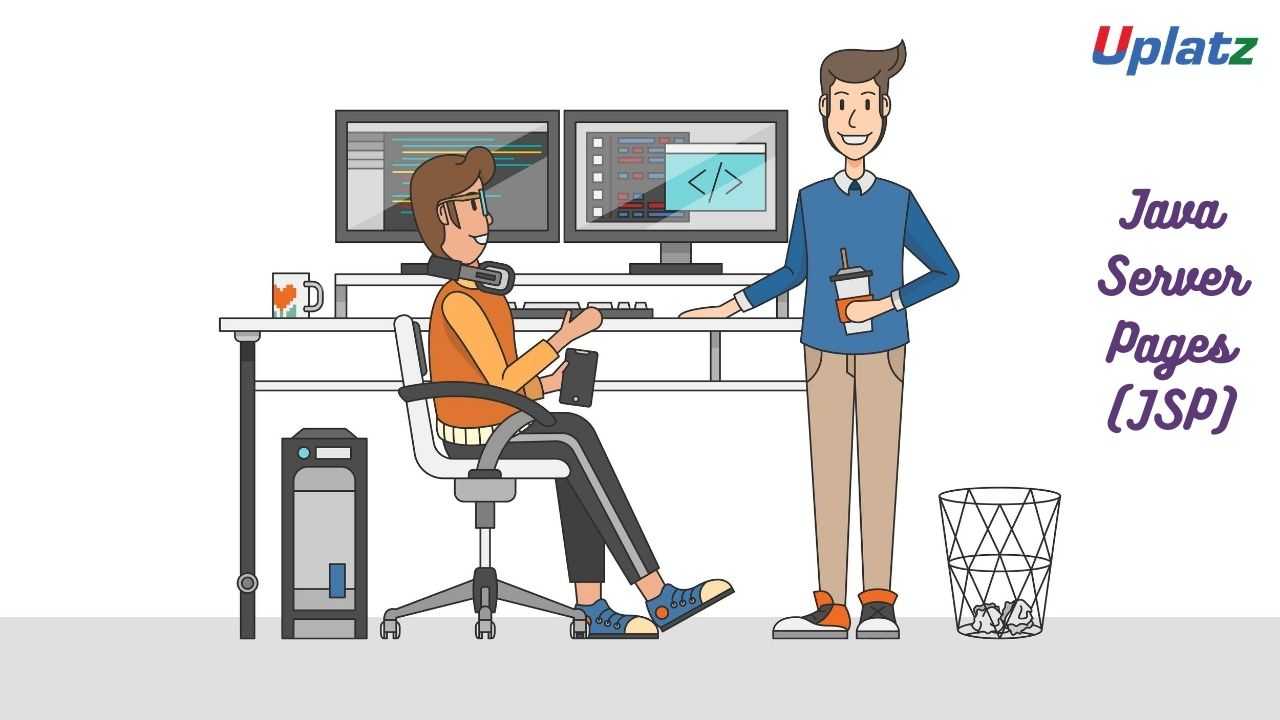Apache Log4j Logging Framework
Learn to implement efficient logging in Java apps using Apache Log4j. Master configuration, patterns, and real-world logging strategiesPreview Apache Log4j Logging Framework course
Price Match Guarantee Full Lifetime Access Access on any Device Technical Support Secure Checkout Course Completion Certificate 92% Started a new career
BUY THIS COURSE (
92% Started a new career
BUY THIS COURSE (GBP 12 GBP 29 )-
 88% Got a pay increase and promotion
88% Got a pay increase and promotion
Students also bought -
-

- Software Testing (Automation Testing with Selenium)
- 30 Hours
- GBP 29
- 2519 Learners
-

- Bundle Course - Software Engineering
- 300 Hours
- GBP 22
- 905 Learners
-

- JSP (Java Server Pages)
- 15 Hours
- GBP 12
- 843 Learners

About the Course: Apache Log4j Essentials – Self-Paced Online Course
Master the art of efficient and intelligent logging with the Apache Log4j Essentials self-paced online course—a complete guide to one of the most powerful and widely adopted logging frameworks in the Java ecosystem. Whether you're a budding Java developer or a seasoned professional looking to fine-tune your application monitoring skills, this course offers a flexible, high-quality learning experience designed for convenience and effectiveness.
Delivered through expertly recorded video sessions, this self-paced program allows you to learn whenever and wherever you choose. You control the pace—review concepts as many times as needed, pause for practice, or fast-forward through familiar topics. Upon successful completion, you will receive a Course Completion Certificate from Uplatz, affirming your skills in implementing logging best practices with Apache Log4j.
Why Learn Apache Log4j?
In modern software development, effective logging is not a luxury—it's a necessity. Apache Log4j provides developers with a fast, reliable, and flexible logging framework that enables them to monitor runtime behavior, troubleshoot issues, record diagnostic data, and maintain transparency throughout the application lifecycle. Log4j is essential for debugging, performance analysis, compliance auditing, and system health monitoring.
By mastering Log4j, you gain control over what information is captured, how it's formatted, and where it's delivered. Whether it’s to a console, file, database, or remote server, Log4j ensures that your logs are organized, scalable, and configurable—all while keeping system overhead low.
This course takes a deep dive into the Apache Log4j 2.x version, which offers significant enhancements over its predecessor, including support for asynchronous logging, lambda expressions, property-based configuration, garbage-free logging, and advanced filtering capabilities. You’ll learn how to fully harness these capabilities to build enterprise-grade logging solutions.
What You Will Learn
This course has been carefully structured to ensure that you gain a solid foundation in logging principles and learn how to apply them practically using Apache Log4j. From fundamental syntax to high-performance configurations, every module includes clear explanations, real-world examples, and hands-on exercises.
Who Should Take This Course?
This course is tailored for a broad audience involved in Java application development and deployment, including:
- Java Developers seeking to implement robust and maintainable logging systems
- Software Engineers responsible for debugging and system monitoring
- Quality Assurance Professionals looking to trace application behavior through logs
- DevOps Engineers focused on application observability and infrastructure logging
- Students and Tech Enthusiasts interested in Java development best practices
Whether you're building enterprise applications, microservices, or standalone programs, logging is an essential part of your software's reliability and maintainability—and this course ensures you’re doing it right.
How to Use This Course Effectively
To maximize your learning from this self-paced online program, follow these guidelines:
1. Start with Clear Objectives
Before you begin, clarify your goals. Do you want to improve your application’s observability? Integrate logging with a centralized monitoring system? Prepare for a Java developer role? Your learning path will become more focused and productive once your goals are defined.
2. Follow the Structured Learning Path
Modules are arranged to move from foundational concepts to more advanced topics. Avoid jumping between lessons. Start with basic configuration and log levels before diving into asynchronous logging or custom appenders.
3. Set Up Your Practice Environment Early
You’ll need a Java IDE (like IntelliJ or Eclipse) and a basic project setup using Maven or Gradle. Try implementing the examples shown in the videos on your own machine. This hands-on practice is crucial to internalize what you learn.
4. Take Notes and Build a Quick Reference
Log4j configuration files can become quite detailed. As you progress, note down common properties, format patterns, and best practices to create a reusable cheat sheet.
5. Pause, Practice, and Replay
Use the pause button liberally. Replay sections that you don’t understand the first time. Apply the knowledge to small projects or simulated systems to get real feedback from your code.
6. Experiment Beyond the Lessons
Try modifying configurations, creating new loggers, or integrating Log4j with different systems. Push the boundaries of what’s taught in the course to explore how Log4j performs in various environments.
7. Use Official Documentation
Refer to the Apache Log4j official documentation alongside the course to dive deeper into features or resolve doubts. This habit builds your research and problem-solving skills.
8. Validate Learning with Mini-Projects
Create mini-projects such as a log dashboard or centralized log collector to reinforce your knowledge. Logging real-world application errors, events, or analytics can simulate practical experience.
9. Share Your Certificate and Skills
After course completion, download your Uplatz Certificate of Completion and proudly share it on LinkedIn or your developer portfolio. Use your skills to enhance your current projects or land new opportunities in Java development.
Where This Course Can Take You
By the end of this course, you will be capable of designing, configuring, and maintaining highly efficient logging systems for Java applications. You'll have the knowledge to:
- Implement real-time monitoring and debugging systems
- Ensure compliance and traceability with structured logging
- Integrate logging solutions with cloud or on-premise observability tools
- Improve application performance through optimized, asynchronous logging
This course doesn’t just teach you Apache Log4j—it empowers you to build more maintainable, debuggable, and production-ready applications.
Course/Topic 1 - Course access through Google Drive
-
Google Drive
-
Google Drive
By the end of this course, learners will be able to:
- Understand the importance and purpose of logging in software development.
- Learn the architecture and core components of the Apache Log4j framework.
- Implement basic and advanced logging techniques in Java applications.
- Configure Log4j properties and XML-based configurations for flexible logging.
- Use different log levels (DEBUG, INFO, WARN, ERROR, FATAL) effectively.
- Customize Appenders and Layouts to control output format and destination (console, file, database, etc.).
- Explore Log4j2 enhancements like asynchronous logging, performance improvements, and plugins.
- Handle logging in distributed applications and integrate with enterprise systems.
- Apply best practices in logging for maintainable and secure Java applications.
Apache Log4j Course Syllabus
- Introduction to Logging
- What is Logging
- Importance of Logging
- Logging Frameworks for JAVA
- Introduction to Log4J
- What is Log4J?
- Why we need to use Log4J?
- Log4J Features
- Log4J Advantages
- Log4J Setup for Java: Standalone and Web Applications
- Download Log4J
- log4J Jar file
- log4j properties
- Log4J Development Approaches
- Programmatic
- Declarative
- Log4J Programmatic Implementation
- Logger
- BasicConfiguror, PropertyConfigurator
- Setting Logging Level
- Log4J Logging Levels
- Default Logging Level
- Available Logging Levels
DEBUG, INFO, WARN, ERROR and FATAL
- Log4J Declarative Implementation: log4j properties Configuration
- Set Debug Level
- Set Appender
- Set PatternLayout
- Set ConversionPattern
- Log4J Appenders
- ConsoleAppender
- FileAppender
- AdminFileAppender
- ReportFileAppender
- Setting Single Appender
- Setting Multiple Appenders
- Log4J Implementation with xml file
- log4j xml
- log4j:configuration
- Setting Appenders
- Setting Log Level
- Setting Conversion Pattern
- Conversion Pattern Syntax
- TTCC
- TTCCLayout
- Time Elapsed
- Thread Information
- Logging Priority
- Logging Category
- NDC - Nested Diagnostic Context
- Application Message
Upon completing the Apache Log4j Essentials: Mastering Java Logging Frameworks course, learners will receive a Course Completion Certificate from Uplatz, demonstrating their expertise in implementing robust logging solutions using Log4j.
This certification enhances your technical portfolio and prepares you for Java development roles where proper logging is a critical skill, as well as supporting roles in DevOps, QA, and system monitoring.
Logging is a core skill for every backend developer and system maintainer. Mastering Apache Log4j can help you land roles such as:
- Java Developer
- Backend Software Engineer
- QA Automation Engineer
- DevOps Engineer
- Site Reliability Engineer (SRE)
- Application Support Specialist
Organizations across industries—from finance and telecom to retail and enterprise software—value developers who implement efficient, maintainable logging strategies.
1. What is Apache Log4j and why is it used?
Apache Log4j is a Java-based logging utility that helps developers log messages during the execution of applications. It supports flexible configuration and output destinations.
2. What are the main components of Log4j?
The core components include Loggers, Appenders, and Layouts. Loggers capture log messages, Appenders send them to destinations, and Layouts format the output.
3. What are the different logging levels in Log4j?
Log4j defines several levels: TRACE, DEBUG, INFO, WARN, ERROR, and FATAL, used to control what kind of messages get logged.
4. What’s the difference between Log4j 1.x and Log4j 2.x?Log4j 2 offers asynchronous logging, better performance, plugin support, and is built to address limitations and security issues in 1.x.
5. How do you configure Log4j?
You can configure Log4j using property files, XML, JSON, or YAML to define log levels, appenders, and layout settings.
6. What is an Appender in Log4j?
An Appender determines the output destination of the log messages, such as the console, a file, or a database.
7. What are Layouts in Log4j?
Layouts define the format of the logged messages (e.g., simple, pattern, or JSON format), helping structure logs for easier readability.
8. What is asynchronous logging and why is it useful?Asynchronous logging improves application performance by writing logs in a separate thread, preventing the logging system from slowing down application execution.
9. How does Log4j handle log rotation?
Log4j provides rolling file appenders that can rotate logs based on file size or time intervals, useful for managing log data.
10. Is Log4j secure?
Log4j 2 includes important security improvements over 1.x. It is essential to keep versions updated to avoid vulnerabilities like Log4Shell (CVE-2021-44228).









